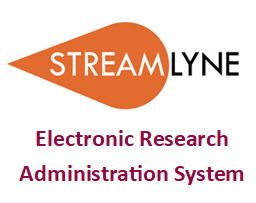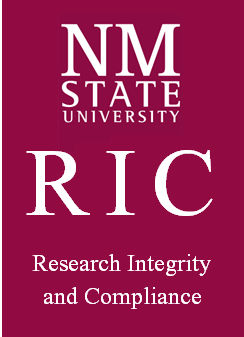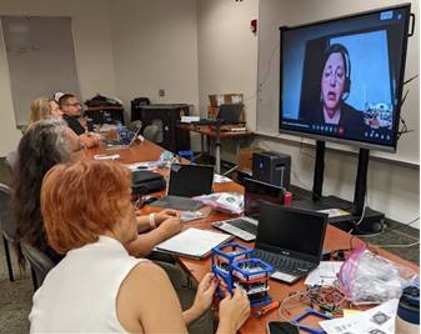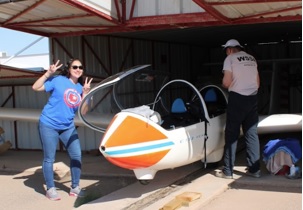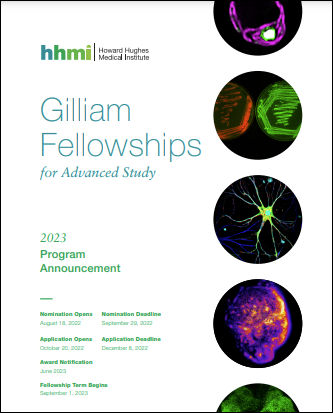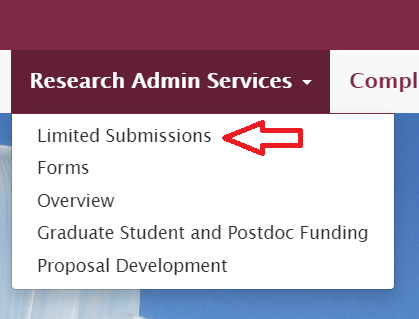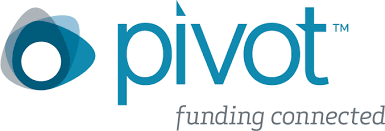 |
|
Addressing Shared Governance Concerns with Streamlyne Selection and Implementation
By Dr. Luis Cifuentes, Vice President for Research, Creativity, and Strategic Initiatives
A few weeks ago, I updated Faculty Senate (FS) executive leadership on the June launch and status of Streamlyne, NMSU’s new electronic research administration (eRA) system. Shared governance concerns over the selection and implementation of the eRA system were raised, which I address below. According to the American Association of University Professors, “shared governance refers to the joint responsibility of faculty, administrations, and governing boards to govern colleges and universities. Differences in the weight of each group's voice on a particular issue should be determined by the extent of its responsibility for and expertise on that issue.” Governance of research should include the “voices” of research scientists, post-doctoral fellows, students, and staff who participate in and are familiar with the research enterprise. New Mexico residents and NMSU students, whose taxes and tuition payments support research, are also stakeholders. Why was the decision to implement a new eRA system made and were campus “voices” weighed? In 2010, President Barbara Couture convened the Research Processes Committee (RPC), which included faculty, to begin an outline of researcher concerns. It was handed to the University Research Council (URC) who reviewed the 2011 Final RCP report and further built out recommendations on improvements to research processes. The Research Process Issues and Action document followed, enumerating 54 concerns. Among them, data, reporting, and communication, which state-of-the-art eRA systems address. Approximately one month before I arrived to NMSU (July 1, 2018), associate deans for research (ADRs) began a discussion of “top-3” issues believed to be most important for me to address. Phillip DeLeon, ADR for College of Engineering, and others, met with me in August 2018 and shared serious concerns over the state of systems supporting our research enterprise, primarily ARGIS, and the need to begin looking for alternatives. The ADRs were speaking not only on behalf of faculty, but of all externally-funded researchers in the colleges, institutes and centers. In December 2019, we met with University of New Mexico (UNM) to better understand their eRA system. Owing to the pandemic, internal discussions of eRA system options did not begin until summer 2020. Later in August 2020, NMSU was made aware that UNM would be developing a request for proposals (RFP) to update/replace their eRA system. With concurrence of presidents/chancellor, the three New Mexico research universities – NMSU, UNM and New Mexico Tech (NMT) – agreed to work together to procure an eRA system on the understanding that UNM would lead, but with considerable participation and input from NMSU and NMT. During Fall 2020, NMSU research leadership moved quickly with UNM and NMT outlining requirements and developing the RFP. We anticipated that a joint RFP would bring better pricing, provide an opportunity for New Mexico universities to work together during the complex implementation, and respond to legislative requests to gain efficiencies and cost saving through joint procurement and implementation. As NMSU’s aging eRA system risks, i.e. costs, support, and security, were mounting, we jumped on this fortunate and timely opportunity. The UNM procurement committee was comprised of individuals representing research administration from the three institutions. This group of professionals reviewed the bids with careful scrutiny of the user interface (UI) — for both the use and ease of research administrators and faculty. The vast majority of information that is manually entered, routed, etc. in the eRA system is completed by research administrators centrally and from colleges/units. Since they perform most of work with the eRA system, it was critical for all institutions to have their research administration professionals vet the systems. Streamlyne surfaced, unanimously, as a leading competitor from both a cost and UI perspective. Along with the decision to partner – a joint RFP issued in November 2020 – we designed and executed a robust, transparent communication strategy for eRA selection and implementation. Phillip DeLeon and Alisha Giron, assistant vice president for research administration, attended URC, which includes a FS representative, to talk about the potential to replace our eRA system in October 2020. This was followed by presentations of possible eRA systems in December 2020. In January 2021, the URC discussed the need to reconvene the Research Processes Committee (RPC) to review progress and concerns with the research enterprise. The RPC met with D’Anne Stuart, Associate Vice President for Finance and Administration Services, in March 2021 to relay research process concerns. Selection and implementation of a new eRA system were not mentioned, nor have any concerns been noted in more recent URC meeting minutes. Three presentations were made to the Council of Associate Deans for Research (CADRe) in July, September, and December 2020. In turn, Streamlyne was discussed at 11 CADRe meetings between April 2021 and April 2022. Beginning in October 2021, I provided monthly Streamlyne updates to the chair of the FS standing committee for Research and Creativity. I initiated these meetings. The LEADS 2025 Goal 2 team – chair of the FS Research and Creativity is a standing member – were similarly informed. Finally, the University community was kept up to date through three town halls and a Streamlyne implementation website. In Blueprint For The Great Reset: Five Themes For Higher Education’s New Imperative, David Rosowski, Vice President for Research at Kansas State University, writes “the need for change is urgent and colleges and universities must accelerate (not simply gravitate) toward that change” (Forbes). Responding to this need requires shared governance models “that can both take into account the interest of all parties, honor academic institutions, and still move quickly enough to make the necessary changes so we can take advantage of changing markets” (The Change Leader, Inc.). I believe the selection and implementation of Streamlyne met key elements of shared governance, particularly in the context of an imminent need to change our eRA system. I look forward to continued dialogue on shared governance in our research enterprise. |
|
NMSU Office of Research Integrity and Compliance Welcomes Faculty, Staff, and Student Researchers to the 2022 Fall Semester!
By Ms. Michelle Gavin, Research Compliance Coordinator, RICThe Office of Research Integrity and Compliance (RIC) welcomes NMSU faculty, staff, and students as we begin our Fall 2022 semester. We hope you all have had a safe and enjoyable summer break. The Institutional Review Board (IRB), Institutional Animal Care and Use Committee (IACUC), Institutional Biosafety Committee (IBC) Committees along with the RIC staff have been working diligently during the stabilization phase of the Streamlyne Compliance module. We are excited about the Fall Semester and having our researchers get on board to using the new eRA Streamlyne system. The IRB, IACUC, IBC and RIC are here to help researchers comply with federal, state, and institutional regulations to ensure safety and protection of human subjects and animals that are involved in research as well as providing local review and oversight of life science research and academic programs for safety with infectious biological agents. IRB Update: In May, the IRB provided initial trainings to researchers and committee members for using Streamlyne. We held several one-on-one meetings via Zoom to get currently approved protocols in Maestro transferred to Streamlyne as well as brand new protocol submissions processed via Streamlyne. Follow-on emails will be sent and additional trainings are planned to provide Streamlyne hints and how-to pointers. Remember, if you have ANY questions about whether your activities are “human subjects research,” please contact the IRB via email to RIC_admin@nmsu.edu. During the summer break, the IRB transitioned new leadership for the committee. Drs. Joe Tomaka and Julie Steinkopf are assuming the new roles of IRB Chair and Vice Chair, respectively. We greatly appreciate the commitment NMSU faculty, staff, and our community members give to this important federal mandated committee. Office of Research Integrity and Compliance Website: As a reminder, researchers are encouraged to review information concerning these types of research and their related processes which are located on the NMSU Office of Research Integrity and Compliance website https://research.nmsu.edu/RIC/Home.html. We are in the process of updating our website and Streamlyne to help researchers maneuver through research processes. CITI Program Online Training: NMSU provides online training and free webinars via the CITI Program to its NMSU researchers (faculty, staff, and students) and affiliated team members. To access these webinars,
Streamlyne Access & Support
|
|
NMSU Faculty Receives Prestigious Guggenheim Fellowship
By Dr. Hamid Mansouri Rad, Senior Proposal Development Specialist, RASCongratulations to Dr. Brandon Hobson for his prestigious Guggenheim Fellowship award. An assistant professor at NMSU's Creative Media Institute, Dr. Hobson teaches creative writing and fiction. He has authored four books, namely The Removed (2021) that has been praised by NPR, New York Journal of Books, and Los Angeles Times, among others. His novel Where the Dead Sit Talking (2018) won the Reading the West Award and became a finalist for the National Book Award as well as being longlisted for the Dublin Literary Award. He has authored a number of other publications that are listed on his website. Dr. Hobson is an enrolled member of the Oklahoma Cherokee Nation Tribe and also teaches at the Institute of American Indian Arts. He received his PhD from Oklahoma State University in 2015. Guggenheim Fellowships are competitively awarded to mid-career applicants with exceptional creativity in the arts. Dr. Hobson is using his fellowship to conduct research and work on his next novel. For more information, please contact Dr. Hobson at Bwhobson@nmsu.edu. |
|
New Mexico Space Grant Consortium Holds Flight Experiment WorkshopBy Dr. Paulo Oemig, Director, New Mexico Space Grant ConsortiumThe New Mexico Space Grant Consortium brought together Teachers in Space, Spaceport America and the Challenger Learning Center to deliver a flight experiment workshop. During a remarkable week-long experience, June 27 to July 1, thirteen teachers practiced soldering, learned programming Arduino microcontrollers, set up sensors such as accelerometers, radiation detectors, and temp/pressure sensors and integrated them into a CubeSat form-factor. Teachers collected in-flight data from a high altitude balloon and from a fixed wing flight. Teachers visited Spaceport America, Virgin Galactic, SpinLaunch, and each of them flew on gliders. Teachers are starting the school year with an incredible experience under their belts, all the materials needed to inspire their students into a space-related career, and the knowledge to fly their own CubeSat experiments. Pictures: Top: On screen, Anne Chinnery, Firefly Aerospace, Vice President for Flights and Test Operations. In the foreground, Tracie Mikesell, Mesa Valley Leadership Academy Middle: Estrella Telles, Mesa Middle School, getting ready to fly Middle bottom: Marcos Prieto, Grants High School, holding balloon and going through pre-flight check Bottom: Participating teachers and staff during their visit at Spaceport America
|
|
HHMI Gilliam Fellowships: Limited NominationsBy Dr. Hamid Mansouri Rad, Senior Proposal Development SpecialistThe Gilliam Fellowships for Advanced Study program has released its 2023 program announcement. This program limits us to nominate only one adviser-student pair “studying scientific problems in biomedical sciences, life sciences, and biological questions in related disciplines.” Eligible students are those who
For more eligibility requirements please refer to the announcement. The Gilliam program will provide the successful nominees $53,000 per year for up to three years. Nominations are due to HHMI on September 29, 2022 by VPR Cifuentes, NMSU’s Institutional Representative designated by HHMI. Since this a limited submission, we are asking eligible advisor-student pairs to please notify us of their intent by sending an email to ras@nmsu.edu (Subject , Submission: HHMI Gilliam Fellowship and the names of the advisor/student pair in the body of the email) by 5:00pm Wednesday August 24. If we receive multiple intents, our office will conduct an internal review to determine the advisor-student pair to be nominated. Once eligibility is met, HHMI will notify the advisers to submit full applications by December 8, 2022. |
|
NMSU Library to Celebrate Prestigious NEH Award on September 9, 2022
By Dr. Hamid Mansouri Rad, Senior Proposal Development SpecialistNMSU Library invites NMSU faculty, staff, and students to participate in celebrating their prestigious National Endowment for the Humanities (NEH) award. The funding was provided competitively for the proposal submitted in summer of 2021 by a group of library staff led by Dr. Monika Glowacka-Musial to digitize and increase access to 15,000 pages of correspondence from the Amador family, a Mexican-American family of prominence in southern New Mexico and northern Chihuahua, Mexico during the 19th and early 20th centuries. Co-investigators of this project are Mr. Dennis Daily, Head of the Library Archives and Special Collections; and Ms. Jennifer Olguin, Rio Grande Historical Collection Archivist. Event will be held on September 9, 2022 from 3:00pm to 5:00pm at NMSU Zuhl Library and will include refreshments, live music, and guest speakers. Download flyer here. To learn more about this project send email to neh-amador@nmsu.edu. |
|
Limited Submission Funding OpportunitiesBy Dr. Hamid Mansouri Rad, Senior Proposal Development Specialist, RASResearch Administration Services maintains a list of limited submission funding opportunities for NMSU research community. The list is accessible through a link on the Research website, through the Research Administration tab. NMSU users can also access the list directly on SharePoint. We encourage NMSU researchers to periodically visit the site and if they are interested in any of the opportunities to please inform us by sending email to ras@nmsu.edu. |
|
Pivot Funding Opportunity DatabaseBy Dr. Hamid Mansouri Rad, Senior Proposal Development Specialist, RASThis is a reminder that in order to assist NMSU faculty and staff in locating external funding opportunities, the RCSI has purchased a subscription to ProQuest’s Pivot available at https://pivot.proquest.com/session/login.
To request a one-on-one or group Pivot training, send email to hamid@nmsu.edu. |
|
|
Graduate School |
|
Fall Teaching Assistant Training and ResourcesBy Dr. Carol Flinchbaugh, Interim Associate Dean for Graduate SchoolThis fall, the Graduate School is collaborating to offer new training and resources for teaching assistants (TA). First, in August, the Graduate School is collaborating with the College of Arts & Sciences to host an in-person teaching assistant (TA) training. The training is on Friday, August 19th from noon-3pm in the NMSU Senate Chambers. The training is open to the first 150 TAs to RSVP using this link. The training will be recorded for those who can’t attend. Second, the Graduate School is collaborating with the Teaching Academy to offer monthly TA ‘check-ins.’ The monthly TA ‘check-ins’ will provide ongoing support and Q&A time for all TAs. The sessions will be held via Zoom from 4:00 to 5:00 pm on the following dates:
|
|
Questions and comments regarding NMSU’s Research Digest should be directed to Hamid Mansouri Rad, Ph.D. at hamid@nmsu.edu, (575) 646-6429. |
|
